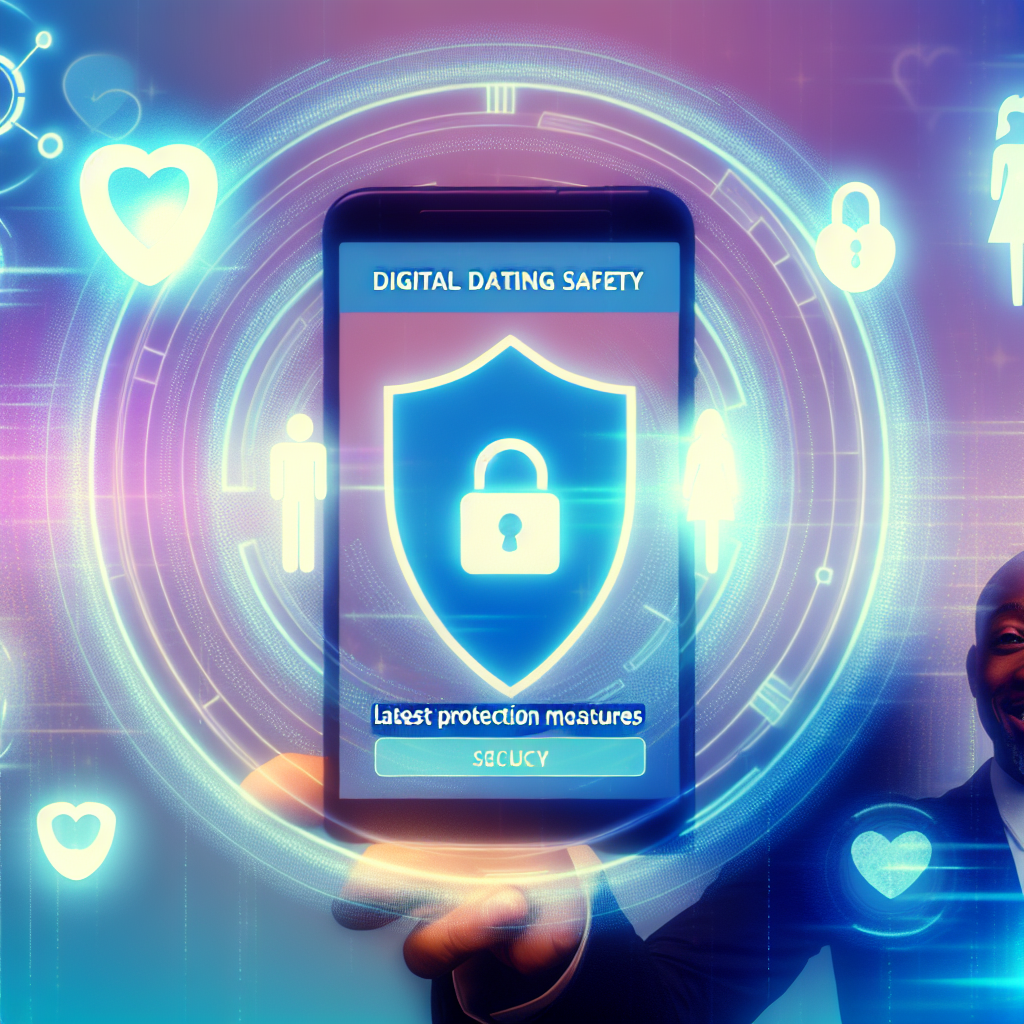Digital Dating Safety: Latest Protection Measures
Introduction
In today’s world, online dating has become the go-to method for singles seeking romance, companionship, or meaningful relationships. According to a 2023 report from Pew Research, over 30% of U.S. adults have used digital dating platforms, with younger adults leading the charge while older generations steadily embrace the trend as well.
However, as technology evolves, so do the risks associated with digital dating. Scammers, catfishers, and data thieves are becoming increasingly sophisticated, leading to financial loss, emotional distress, and even personal safety concerns. The Federal Trade Commission (FTC) reported that romance scams accounted for over $1.3 billion in losses in 2022, with victims frequently tricked into sending money, sharing personal information, or falling for fraudulent schemes.
Despite the risks, online dating remains a powerful resource for millions of people to find love and connection. The key is ensuring that users are well-informed about the latest digital dating protection measures to safeguard themselves while navigating this ever-expanding world. From AI-driven identity verification to enhanced privacy settings, new technologies and safety strategies can help minimize risks and protect singles of all ages from falling victim to cyber threats.
This article will explore the latest cutting-edge safety measures, professional studies on digital dating security, and essential tips to help you date wisely in the digital age. Whether you’re a first-time online dater or an experienced user, these insights will empower you to take control of your dating experience with confidence and security.
Latest Protection Measures in Digital Dating
🛡️ AI-Driven Identity Verification: Stopping Catfishers in Their Tracks
Many top dating platforms, including Tinder, Bumble, and Hinge, now use AI-based identity verification features. These tools require users to submit real-time video selfies or biometric verification to prove they are who they claim to be. This measure significantly reduces catfishing and fraudulent profiles by detecting inconsistencies in facial recognition and document authenticity.
🔐 Encrypted Messaging and Data Protection: Keeping Conversations Private
Apps like Hinge and OkCupid have invested in end-to-end encryption to protect private conversations. This ensures that only users communicating with each other have access to their messages, preventing hackers or third parties from eavesdropping on sensitive conversations.
🤖 Automatic Scam Detection: How AI is Spotting Fraudsters
Dating platforms like Match and eHarmony utilize AI-driven scam detection algorithms that flag suspicious behavior in real-time. By analyzing conversation patterns, requests for financial assistance, and fake profile activity, these platforms proactively warn users and remove fraudulent accounts before harm occurs.
🔍 Background Checks & Verification: Know Who You’re Dating
Following a rise in safety concerns, some platforms, such as Tinder and Match, have implemented background check partnerships with companies like Garbo. These services allow users to verify if a potential match has a criminal record, restraining orders, or a history of violence.
📍 Location Privacy Safeguards: Protecting Your Whereabouts
To protect against potential stalking or real-world threats, platforms are strengthening their location privacy policies. Apps like Bumble have introduced “Incognito Mode”, allowing users to browse anonymously, while Tinder has incorporated distance blurring to prevent exact locations from being revealed.
🔑 Two-Factor Authentication (2FA): Locking Down Your Profile
To prevent unauthorized account access, dating platforms now encourage two-factor authentication (2FA), which requires a second verification step—such as a phone number, email confirmation, or biometric scanning—before logging in from a new device.
📹 Video & Audio Chat: Verify Before Meeting in Person
Rather than meeting strangers in-person right away, many apps promote video and audio chat features to verify someone’s authenticity before scheduling a real-life date. This added layer of security allows users to assess body language, tone, and sincerity before committing to an in-person meet-up.
🚨 Safety Resources and SOS Panic Buttons: Instant Protection at Your Fingertips
Some dating platforms, such as Tinder and Bumble, now integrate panic button features powered by Noonlight. Users can discreetly alert emergency services when they feel unsafe during a date. Additionally, these platforms provide dating safety guides, tips, and helpline contacts for users dealing with harassment or security concerns.
Professional Studies on Digital Dating Safety
📚 Studies Reveal Hidden Dangers of Online Dating
Research on digital dating safety has become an essential focus in cybersecurity and psychology. According to a study conducted by the University of Warwick, individuals engaging in online dating face a higher risk of encountering fraudsters, cyberstalkers, and emotional manipulation tactics due to the increased anonymity of the internet ([University of Warwick, 2022](https://warwick.ac.uk/newsandevents/pressreleases/digital_dating_safety)).
⚠️ One in Three Online Daters Report Deceptive Experiences
A 2022 study published in the Journal of Cyberpsychology, Behavior, and Social Networking highlighted that one in three online daters reported experiencing some form of deception or manipulation, including financial fraud or emotional coercion ([Cyberpsychology Journal, 2022](https://www.liebertpub.com/doi/10.1089/cyber.2022.0123)). The research emphasized that common red flags include:
– Rapid intimacy and declarations of love from a new online match
– Unwillingness to meet in person or verify identity through video chat
– Requests for money or financial assistance disguised as emergencies
– Pressure to leave a dating app and continue communication on a private platform
💳 Cybersecurity Experts Warn of Phishing Scams on Dating Apps
Additionally, a 2023 cybersecurity report released by Kaspersky Labs underscored the growing presence of phishing scams within dating apps, wherein users are tricked into providing financial details under false pretenses. The report recommended multi-factor authentication, vigilance against unsolicited requests, and being cautious of external links as crucial preventative measures ([Kaspersky, 2023](https://www.kaspersky.com/blog/dating-app-security-2023)).
Conclusion: Stay Safe While Finding Love Online
With more people turning to digital platforms for romance, prioritizing safety is essential. By leveraging new AI-driven verification tools, encrypted messaging, scam detection technology, and personal privacy settings, singles can protect themselves while enjoying meaningful connections online. Moreover, staying informed about professional studies on dating fraud and cybersecurity can help users recognize red flags and avoid potential scams. While online dating offers incredible opportunities, a secure and mindful approach ensures a safe, rewarding experience for daters of all ages.
Summary:
This comprehensive article explores the latest safety measures in the world of digital dating, including AI-driven identity verification, encrypted messaging, scam detection algorithms, and location privacy safeguards. It also delves into professional studies highlighting the hidden dangers of online dating, such as deceptive experiences and phishing scams. By staying informed and leveraging the latest protection tools, users can navigate the digital dating landscape with confidence and security, ensuring a safe and rewarding experience.
References:
1. [Pew Research: Online Dating Statistics 2023](https://www.pewresearch.org/fact-tank/2023/online-dating-trends/)
2. [Federal Trade Commission: Romance Scam Reports 2022](https://www.ftc.gov/consumer-alerts/romance-scams-warning)
3. [Kaspersky: Dating App Security Threats 2023](https://www.kaspersky.com/blog/dating-app-security-2023)
4. [University of Warwick: Digital Dating & Cybersecurity Research](https://warwick.ac.uk/newsandevents/pressreleases/digital_dating_safety)
5. [Cyberpsychology Journal: Online Dating Deception Study 2022](https://www.liebertpub.com/doi/10.1089/cyber.2022.0123)

Dominic E. is a passionate filmmaker navigating the exciting intersection of art and science. By day, he delves into the complexities of the human body as a full-time medical writer, meticulously translating intricate medical concepts into accessible and engaging narratives. By night, he explores the boundless realm of cinematic storytelling, crafting narratives that evoke emotion and challenge perspectives. Film Student and Full-time Medical Writer for ContentVendor.com




